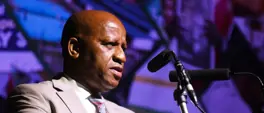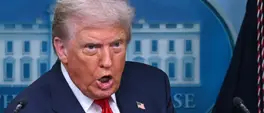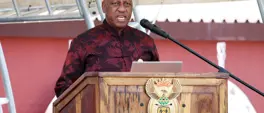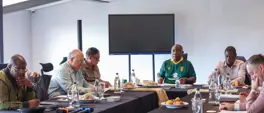PETER WANDWASI: African Development Bank ownership structure reinforces neocolonialism over the sovereignty of African countries
Peter Wandwasi
2 August 2024 | 7:05The current ownership of the African Development Bank is not crafted to insulate postcolonial African countries from neocolonial shackles that can, insidiously, undermine Africa’s aspirations to self-sustenance, writes Dr Peter Wandwasi.
The African Development Bank was established by 23 African governments in Khartoum, Sudan, in 1964, after they gained independence from colonial tutelage.
The imposition of lingering prohibitive colonial tentacles and the exploitation of Africa’s resources by avaricious foreign colonial countries imposed pernicious constraints on Africa’s ability to organise itself and mobilise the financial resources for self-sustenance.
The rationale for the bank's establishment was to mobilise financial resources and protect and advance the socioeconomic aspirations of newly independent African states from further exploitation by colonial powers.
The establishment of the African Development Bank was also intended to marshal the necessary financial resources amongst the newly independent African countries to support Africa’s postcolonial development agenda.
Since its establishment, the African Development Bank has provided loans to various African countries to support development programmes.
In its 2023-2024 strategy, the African Development Bank envisions a prosperous, inclusive, resilient, and integrated Africa free from poverty characterised by improved living standards.
Nonetheless, the current ownership of the African Development Bank is not crafted to insulate postcolonial African countries from neocolonial shackles that can, insidiously, undermine Africa’s aspirations to self-sustenance.
The overriding powers that come with shared ownership raise serious questions about the decisive powers that non-regional African member countries can exercise to undermine the collective strategic continental achievement of the aspirations of African countries at the negotiating table.
The African Development Bank is owned by 82 member countries, 54 of these member countries are African regional member countries (originating from the African continent), and 28 of the 82 member countries are non-regional member countries (with origins outside the African continent).
In terms of percentage shareholding of the African Development Bank, the African regional member countries (originating from the African continent), together with non-regional members categorised as donors, most of them are from Europe, who own 60% shares of the Bank. The remaining 40% is owned by non-regional member countries with origins outside the African continent.
Essentially, non-African foreign regional member countries own more than 51% of the shares of the African Development Bank, compared to what the 54 African regional member countries own altogether.
Compared to the distribution of ownership of shares in similar regional development banks, the Inter-American Bank, for example, is only owned by its 48 regional member countries. Asian regional member countries own 84% of the shares of the Asian Development Bank, and the United States, a non-regional member country, has only been allowed to own about 16% of the shares of the Asian Development Bank.
In comparison, regional member countries who own Asian and Inter-American Development Banks, including non-regional African member countries categorised as donors mostly from Europe, own more than 51% of the African Development Bank, African regional member countries have no ownership shares in Asian, European, or Inter-American Development Banks as non-regional member countries.
The evident majority ownership of the African Development Bank by non-Africa foreign member countries affirms the stature of the African Development Bank as a private multinational financial corporation where board members are not elected democratically.
Like an international financial corporation, board members exercise voting rights based on the weight of share ownership and choose to, discretionally, build voting alliances at the negotiation table to achieve a profit motive, not a socioeconomic motive.
Arguably, the intention of the African Development Bank may be cloaked in the socioeconomic veil of humanity seeking to advance the understanding amongst Africans that such lending support provided to African countries improves government services, and diversifies the economy to create jobs.
However, like any international financial corporation, the incentive undergirding financing instruments is purely economic, and where such loans are advanced to state entities or parastatals, the government is required to guarantee such loan issuance which, by implication, transmogrifies into a sovereign debt where citizens bear the responsibility of repayment.
It is not in doubt that the current ownership of the African Development Bank is structured with a semblance of the shackles of neocolonialism, and is likely to impose prohibitive inflexibility on the ability of African governments to override the decisions of the members of the board from non-African regional member countries based on share ownership, should the sovereignty of African countries be threatened at the negotiating table.
While the intention may be noble, the majority of non-African foreign ownership of the shares of the African Development Bank can potentially incubate more deleterious controversies.
Some leaders of African governments, in an attempt to conceal the failures of their governments to comply with the loan repayment obligations of such a sovereign debt, may find a convenient shield to argue that in the face of such dominant foreign ownership of the African Development Bank, the input of African governments in the decision-making processes at the negotiating table at the Bank is often overridden by decisions of majority foreign shareholders.
In an attempt to evade repayment obligations, leaders of African governments can also find room to claim that acceding to the repayment of such sovereign loans amounts to foreign dictates, which plunges African countries into deleterious downgrades, thus, raising global financial risk profiles of defaulting African governments, and, to the worst can result in the repossession of African countries by non-African regional member countries.
The current ownership of the African Development Bank is not crafted to insulate postcolonial African countries from neocolonial shackles.
Majority ownership of the African Development Bank by non-African member countries undermines the collective achievement of Africa’s continental socio-economic strategic aspirations, thus, reinforcing neocolonialism over the Sovereignty of African Countries, which can potentially result in heightened global financial risk profiling and downgrading of most African countries.
Dr Peter Wandwasi has a PhD in Metaevaluation from the University of the Witwatersrand. He is an associated Senior Research Fellow at the University of Johannesburg’s Institute for Pan-African Thought and Conversation.
Get the whole picture 💡
Take a look at the topic timeline for all related articles.

















